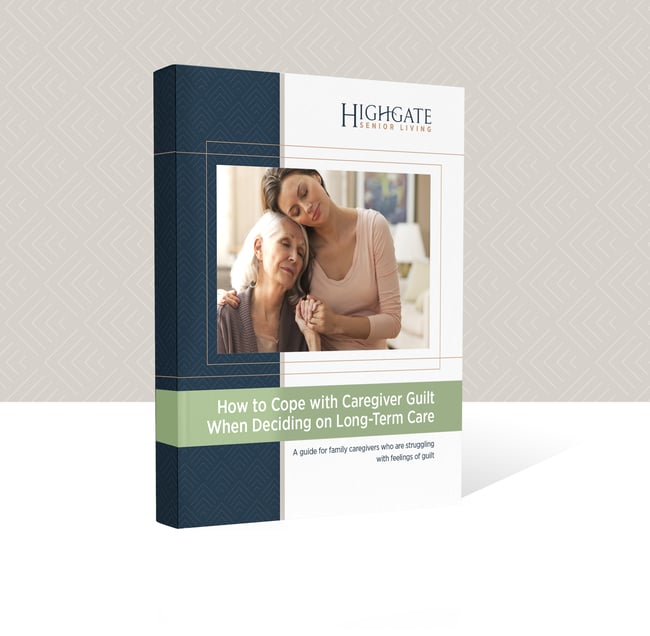Caregivers often burden themselves with a long list of self-imposed oughts, shoulds, and musts. Some days you feel guilty because you want your responsibilities as a caregiver to end. Other days you feel guilty because you think you are not doing a good enough job as a caregiver. Every day you ask yourself if caregiving has to feel like this.
Guilt is a feeling of having done wrong or failed in an obligation. It is a part of the human experience, and it will be part of your caregiving experience. However, it does not have to take over the entire experience.
Instead of beating yourself up over faults that are imagined, unavoidable, or simply human, consider that no one is perfect 24/7, that you are doing the best that you can at a job you have no training for, and that it is OK if there is a discrepancy between what you think you should do and what you are willing and able to do.
In this guide, you will learn about:

